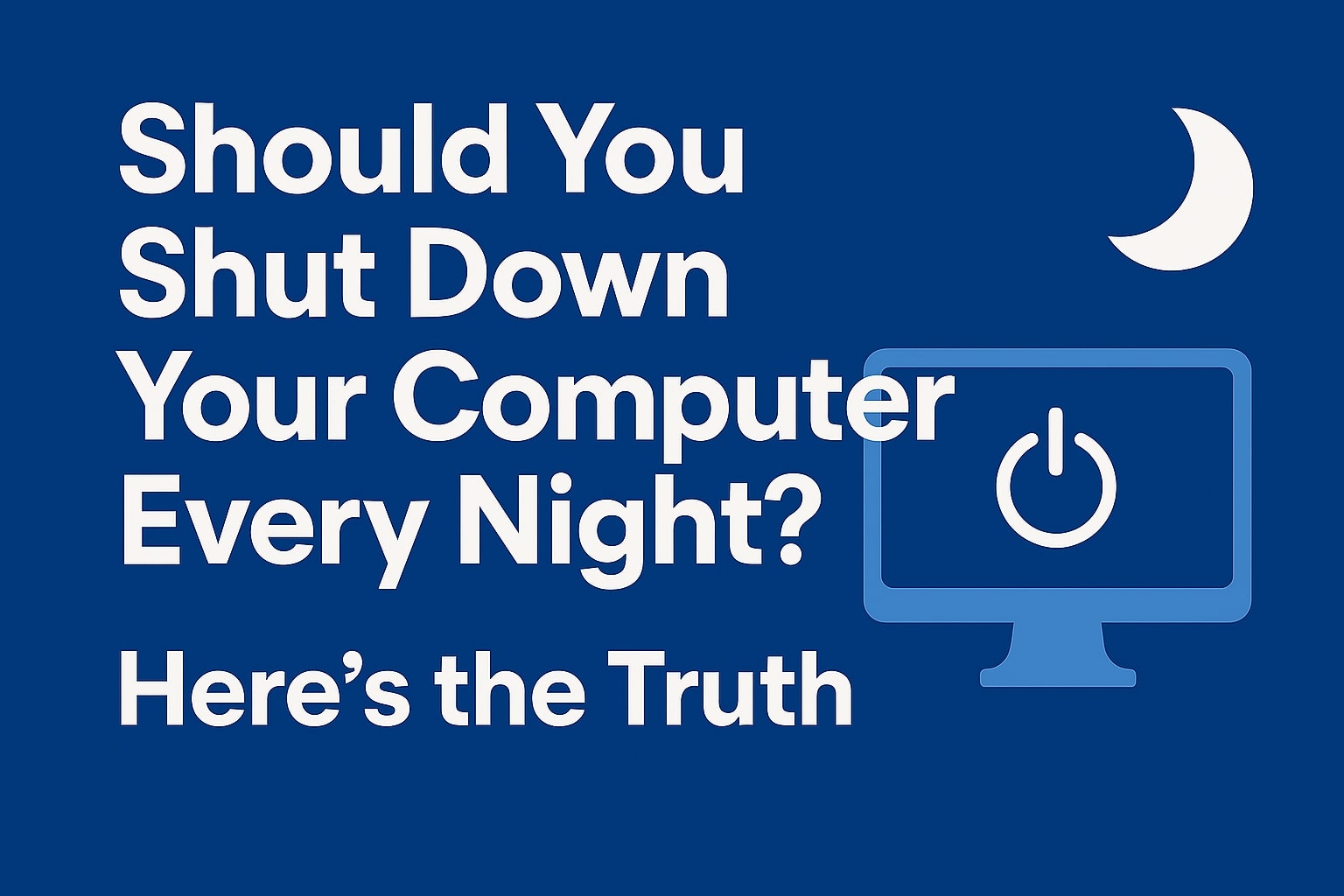Posted On 06 Sep 2025
The nightly shutdown debate has long divided computer users. Some swear by powering down daily, while others leave their machines running for weeks. So, what’s the real answer? It depends on how you use your computer and what you want to prioritize: performance, convenience, or longevity.
Shutting down your computer every night can offer several benefits. It clears your system’s memory, closes background processes, and allows updates to install properly. This can improve performance and reduce the risk of software glitches. It also helps components cool down, potentially extending hardware lifespan. Plus, it’s more secure—especially on shared or public networks—since sleep mode retains encryption keys in memory.
On the flip side, leaving your computer on or in sleep mode is more convenient. You can resume work instantly without waiting for boot-up. Sleep mode also allows background tasks like virus scans or backups to run overnight. And with modern energy-efficient systems, the power savings from shutting down are minimal—often just a few cents per night.
Experts suggest a balanced approach: if you use your computer daily, shut it down a few times a week to refresh the system. If you won’t be using it for more than a day, a full shutdown is ideal.
Ultimately, there’s no one-size-fits-all answer. Consider your usage habits, energy goals, and whether convenience or maintenance matters more to you. Whether you choose shutdown, sleep, or hibernate, the key is consistency and occasional rebooting to keep your system healthy.









